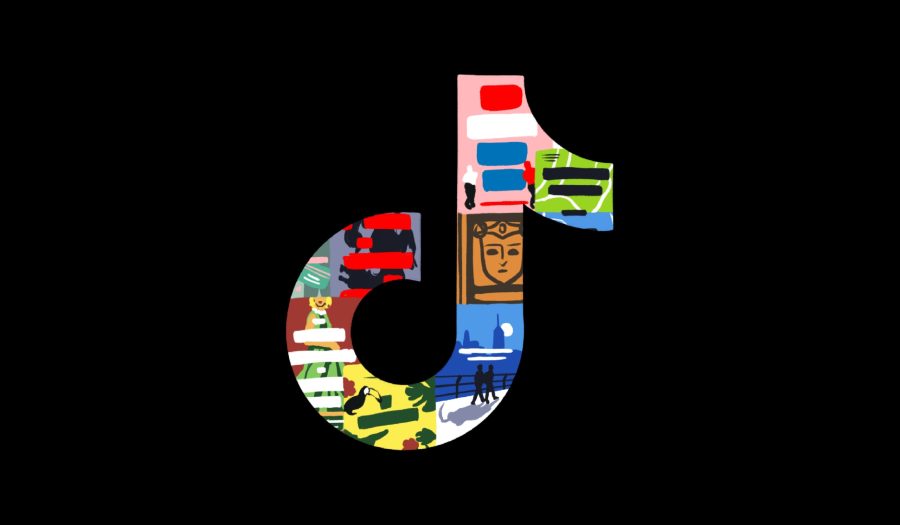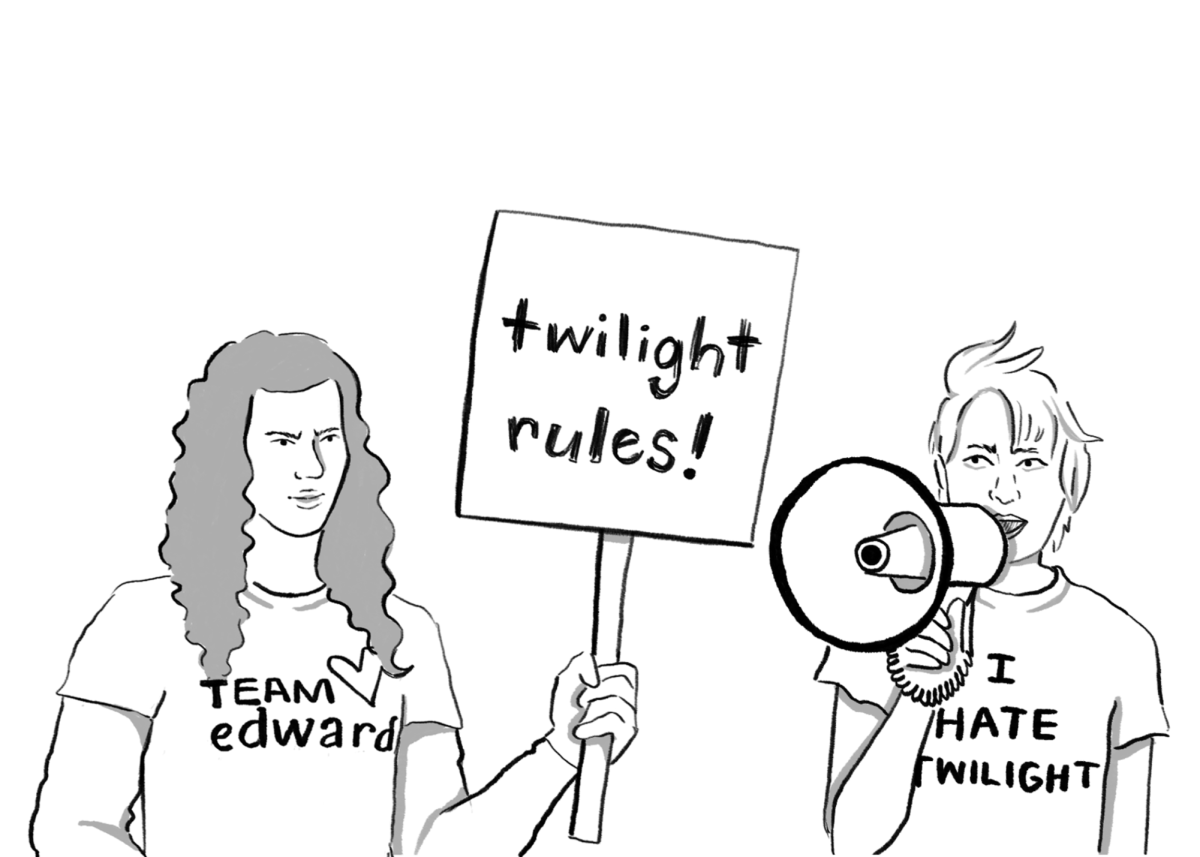Many fiction books have risen in popularity and following due to platforms like TikTok giving way to the grand #BookTok, but this also reveals the appeal of certain genres to youth and how an app known for immediacy is very much a powerhouse behind providing a pathway for more reads to fall into individuals’ laps.
The ambience of editorial and customer reviews for the romance book “It Ends with Us,” by #1 New York Times Bestselling Author Colleen Hoover is overwhelmingly positive, many praising it for how it addresses abuse and survival and weaves a raw, emotional story together. Other reviews are caustic, some from Goodreads refusing to call the book a romance and addressing how Hoover does not delve into abuse appropriately or use much other than poor, shock-value writing.
Hoover is just one example of many authors — such as those from the Wattpad-to-publishing-industry pipeline — generating much positive feedback from readers mingled with other readers who express evident disinterest in their writing styles and themes of potential present toxicity in relationships.
There is an intriguing contrast between those looking for a simple, fun or emotional storyline — whether it be romantic or thrilling — versus those more invested in the writing craft of the author, sans any improper representation of those struggling. This stark contrast, additionally, may even hint at the more elusive readers who pick up a book because of curiosity on the strong opposing viewpoints based in the themes or plot.
Regardless of the polarizing reception, the book by Hoover — just one of many others — has gained a following on TikTok and a household-name status in the young adult realm. In fact, Hoover’s new book “It Starts with Us” has already boomed in sales since its release a few days ago, despite the other book being released back in 2016.
Just a cursory skim of TikTok users’ straightforward book reviews and discussion of all things literary — or #BookTok — paves a way for grasping which books are particularly palatable and which aren’t in a rapid manner. This means that marketing can be reshaped to accommodate these groups of interest in the form of book displays or incentivizing popular BookTok creators to promote certain books or ideas. Over the summer, Barnes & Noble even teamed up with TikTok for a #BookTokChallenge to encourage youth to read some popular books on their website.
There are even labels for the BookTok videos or discussions such as “Books to read when you need a good cry” or “Books to read when you feel alone,” which streamline readers’ wishes to find out more about a plot without reading a blurb or skimming a synopsis, in a visually appealing video. Some users even appeal to nostalgia with usage of dark academia backgrounds, like tinted bookshelves, and a wistfulness for the past or an idealistic trope.
As exemplified by the aforementioned book, popularity surges and returns for books as well, especially when specific titles go viral. This means that the potential for a book even more than a decade old to get big is feasible, something that older classics usually had a better grip on.
The Guardian even details the snappy, attractive aspect of BookTok videos on TikTok; obtaining a visceral reaction means being impassioned about a book in the first place and appealing to pathos. By projecting a positive or emotional feeling towards a book, another reader may be inclined to pick it up.
And unsurprisingly, many of the books that go viral are young adult and romance or thriller — genres that appeal to the youth that are on TikTok already.
In other words, a few swipes in TikTok or this realm of immediacy instead of often lengthy YouTube video reviews or just classic word-of-mouth with loved ones can ironically provide a way to discover a book. The simplicity of the short reviews or discussions on TikTok can even draw the interest of non-avid, disinterested readers and reel them in.
Popular YouTubers or “BookTubers” like polandbananasBOOKS or Christine Riccio once dominated the scene of book reviews — from singular reviews on books to reviews on favorite novels or series — with their meticulously edited but organic and conversational ten minute or so videos. While this scene hasn’t vanished, there is a different, more gravitational pull to #BookTok in that it’s even more concise.
This platform of immediacy has propelled the growth of a very fortunate list of books to sell quickly forward, from historical retellings such as “Song of Achilles” or “Circe” by Madeline Miller to the contemporary, gray-toned “A Little Life” by Hanya Yanagihara. Again, specific genres are rising in popularity among the reader community even if these books — along with other ones such as romance “They Both Die at the End” by Adam Silvera— didn’t hit the market very recently, either.
Nonetheless, this has led to a multitude of questions, from whether a medium like the audiobook for the average busy individual “counts” as a book to whether reading a plethora of young adult books “has the right” to be defined as real literature.
Moreover, this poses the question of how books gain traction. Alex Aster, for one, is a popular TikTok user and writer who published a fantasy novel, “LightLark,” just a couple of months ago. In the next month, the book received quite an amount of critique, some of which may have stemmed from her potentially wealthy and immodest upbringing but also due to disappointment at her allegedly elementary writing.
There has further been news of Aster and her team attempting to stifle the criticism, which points to how popular books can easily become an echo chamber of positive reinforcement despite valid opposition or opposing curiosities as well as frustrations from those on platforms like Wattpad who remain eager to publish their own book.
This details the ease at which popular books travel and how they may not deliver once they end up in an intrigued individual’s lap.
Perhaps the novel beauty is that TikTok popularity is not solely generating charming dances or creative food videos. It is now allowing authors to bloom in success through #BookTok more than ever and giving readers a place to read, then reconvene and chat about their favorite books in an even quicker fashion. Additionally, it is further reminding individuals that popularity is not necessarily equivalent to critical acclaim or superior writing.
This might lead to tricky territory when authors grapple with difficult subjects such as abuse or trauma in ways that don’t agree with many of their audience, but the lack of the latter may not deter those simply interested in a quick or fun read at face value. It probably won’t even deter the authors who make a lucrative living from their book sales to continue doing what’s launched them to The New York Times Bestseller’s list in the first place.
Image Courtesy of Angelia Liang

















Burny • May 9, 2023 at 10:49 pm
Looking forward to seeing more great blog posts here.
Mae • Nov 28, 2022 at 2:27 am
Interesting. Tiktok has a lot to offer, right?
Abby • Oct 28, 2022 at 4:54 pm
The Tiktok app is the best app in this generation so far.
www.windowcleanersburnaby.com • May 8, 2023 at 10:34 pm
Looking forward to seeing more great blog posts here.